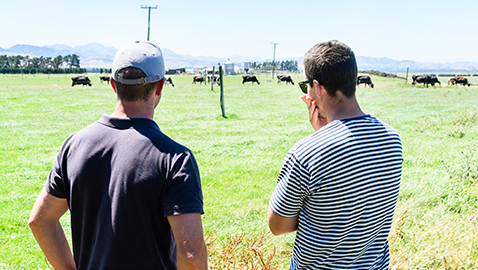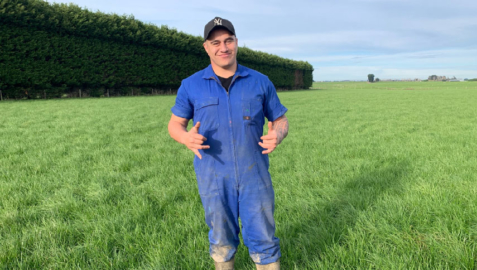
Be a great listener
Module Overview
The power of listening
Farmers have a positive reputation for being practical, good at cutting through the bullshit and problem-solving. Sometimes however when someone is going through a period of struggle, or even just feeling a bit low or upset, it’s often not a straightforward problem to solve. Telling people to just get over it, laughing it off, or offering some pithy advice can sometimes seem to work but it often just pushes the problem underground, only for it to pop up again later on.
Listening is a powerful way to help people who are struggling, and it is a very under-rated form of communication. It can seem counter-intuitive, just to listen. Why not cut to the chase and get the problem sorted? But without properly listening we haven’t always heard what the real problem is, so we end up solving the wrong one.
How a trusted listener can help
When we are feeling upset, like when we are failing, or under the pump, having a trusted listener can help us:
- Clarify what the problem really is, and potential solutions, just by being able to verbalise what we are thinking out loud
- Feel like someone is prepared to understand us, without judgment
- Have a sense of social connection, which can be great for calming down the nervous system.
The following are things you can try next time someone comes to you in a state of struggle or emotional upset:
- Encourage them to talk if they need it, such as saying ‘are you ok, you seem a bit upset?’ ‘would you like to talk about this?’ or ‘I’m here to listen if you need it’
- Resist the urge to give advice or solve the problem as you see it, just keep listening
- Show that you are listening by occasionally nodding and saying things like ‘yes’ or ‘I get that’ (acknowledging that you have heard, not that you agree or disagree)
- Have some eye contact if that feels ok
- Ask questions if you need to clarify anything you don’t understand (don’t let your questions be loaded though as a roundabout way of giving your opinion, be genuinely curious)
- After a while repeat back what you have heard, just to make sure you have understood them. Start with something like ‘so you’re saying that….’
- Once you’ve done all this it may be a good time to give some advice of your own, if it is asked for, or you have an obligation to give it (such as a boss to a worker).
The importance of confidentiality
If someone is going to trust you they will want to know that you respect confidentiality. If the problem is sensitive, agree with them before too much is said that this conversation won’t be shared with others without agreement between the two of you.
In the rare situation, there might an immediate safety concern, such a threat of harm to self and others, you will have to break this agreement.
Listening takes practice
Listening is a skill that benefits from practice. Try practicing the tips above with small niggling interpersonal problems first, to see how they work for you. Then you’ll be better prepared for when people come to you with bigger problems.
As Stephen Covey, author of The 7 habits of highly effective people says “When you really listen to another person from their point of view and reflect back to them that understanding, it’s like giving them emotional oxygen.”
If you feel out of your depth with someone else’s problems or are worried about them, there are plenty of support services available that you can contact for help. Find these at https://www.mentalhealth.org.nz/get-help/in-crisis/


